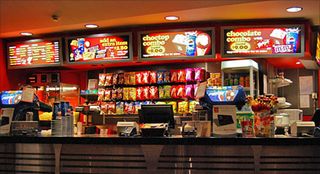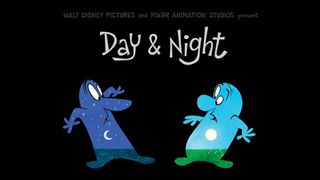It stands for Recommended Retail Price

It's more or less common knowledge that cinemas don't make half as much money on actually screening films as they do on the ancillary stuff, ie the food and drink.
But is it really necessary to charge over the odds? Where the retail sector is constantly engaged in a price war to keep prices down, cinemas seem to be daring each other to go increasingly above the RRP.
If the cinema is pleasant, with welcoming decor, friendly staff and decent food and drink at reasonable prices, we'll probably spend more .
The short answer

One of the pleasures of seeing the latest Pixar is discovering the ace new short screened before the main feature.
The question is: why aren't cinemas encouraging more of this? The Spielbergs and Camerons of the future are right there, waiting to be discovered, and a five-minute short is much more memorable and welcome than (yawn) more adverts.
Better still, make a concerted effort to bring young British filmmakers into the limelight by pairing their shorts with appropriate features.
Electrified seat backs

Sounds extreme, but it'd be amazing to sit through a film without the impolite fool behind you tapping out his thoughts on the film in Morse code, mainlined straight into your vertebrae.
It's either that or increase the distance between aisles. And let's face it, no multiplex is going to agree to that.
Double the fun

Grindhouse might have failed with the public, but largely that was down to a lack of communication. The double-feature has an honourable - and often dishonourable - tradition that's well worth resurrecting, for that all important 'added value.'
Consider the classics that were once paired together. The Wicker Man and Don't Look Now . Grave of the Fireflies and My Neighbour Totoro . Every film noir, ever.
And in repertory circles, it's an ace way of seeing faves back-to-back, as yesterday's sell-out Shaun of the Dead / Hot Fuzz double at Brixton's Ritzy Cinema proved.
Put the X into extras

DVD has now been around for over a decade. It's time that studios admitted that by no stretch of the imagination can the following be classed as 'extras':
Interactive Menus. Subtitles. Scene Access. Hell, let's through trailers and music videos into the mix, too.
Put simply, if it doesn't have a decent documentary or commentary on it, it's probably not best to draw attention to the extras at all.
Try harder with incentives

The bargain that is Orange Wednesdays have spoilt us so much that's it often hard to justify going to the cinema any other night.
Fortunately, the cinemas have cottoned onto this and have introduced loyalty schemes to keep us going throughout the week.
Unfortunately, there's a huge disparity in the quality of those incentives. Cineworld's all-in subscription is the gold standard for movie obsessives, but it does leave Odeon's recently introduced points-based system a tad miserly.
But it's better than Showcase, which offers...a couple of quid off on Tuesdays. Yeah, cheers, thanks.
Play the percentages

France has one. Spain has one. America doesn't need one.
The quota system means that a legally binding percentage of the nation's screens must show homegrown movies: a means of protecting local talent by stopping Hollywood colonising every distribution channel.
It's a controversial idea, and prone to abuse: the last time Britain had a quota, in the 1930s, unscrupulous producers knocked out any old cheap tat to fulfil their side of the bargain: the so-called 'quota quickies.'
But with the entrepreneurial likes of Shane Meadows and Michael Winterbottom setting an example, there's no reason why quickies need not be goodies.
Flexible screening times

Understandably, cinemas want to get as many screenings fitted into a day as possible.
Too often, though, the maths don't add up. An actual example: one cinema is currently showing Inception at 17:30 or 20:30 on a weekday. The earlier screening is too soon for anybody with an office job, but seeing the later one means a bedtime of close to midnight.
The problem, of course, is that invariable films are tied to the same screen all day... but with advances in digital projection technology, hopefully in years to come more flexible screening times can be arranged to suit audience lifestyles.
Education, education, education

"Give me a child until he is seven and I give you the man," the Jesuits used to say of their education policy... but what seven-year-old is taught about cinema in schools?
A century and more since its creation, it's time to accept that cinema is as rich and varied and life-enhancing an art as painting or literature, and should be introduced as such.
Teaching a wide range of movies to kids - yes, even as young as seven - will ultimately make their adult selves interested in better films, leading to better films getting made.
Support local filmmaking

From mates-in-a-shed film societies to entrepreneurial movie-making initiatives like Microwave, more needs to be done to support the no-budget end of the British film sector.
Access to cameras, courses in editing, cinemas willing to showcase local efforts with free screenings... are already being done, up and down the country, but not necessarily in an integrated or consistent way.
The next great director might not hail from London or Manchester but from some far-out country village, so let's at least give him or her half a chance to find support within a fifty mile radius.
